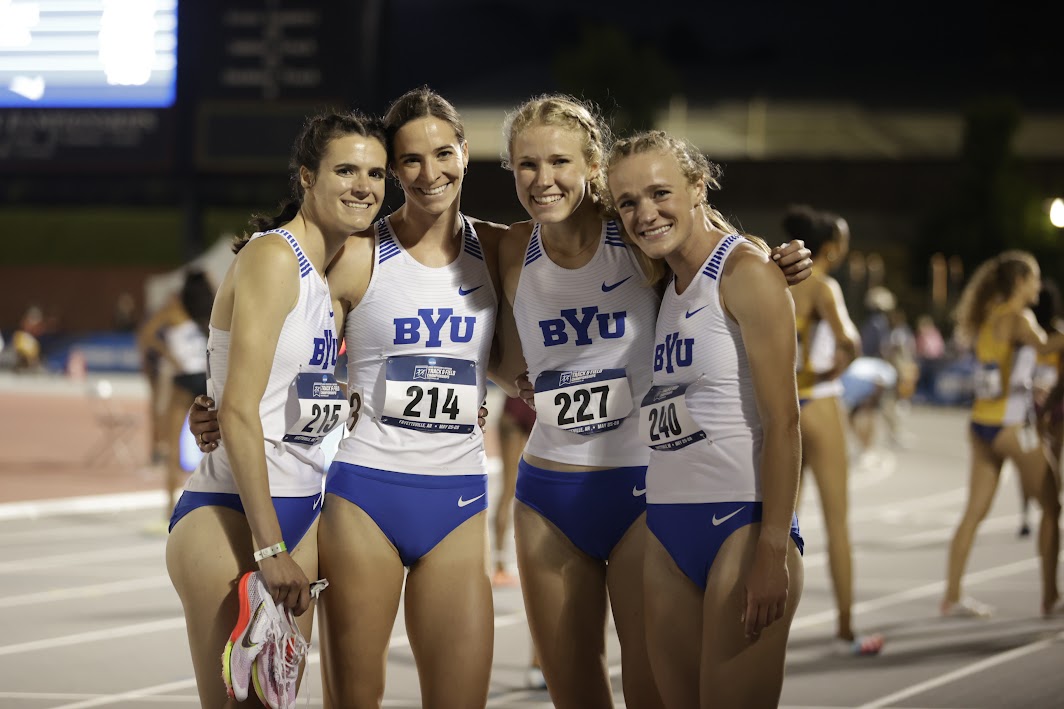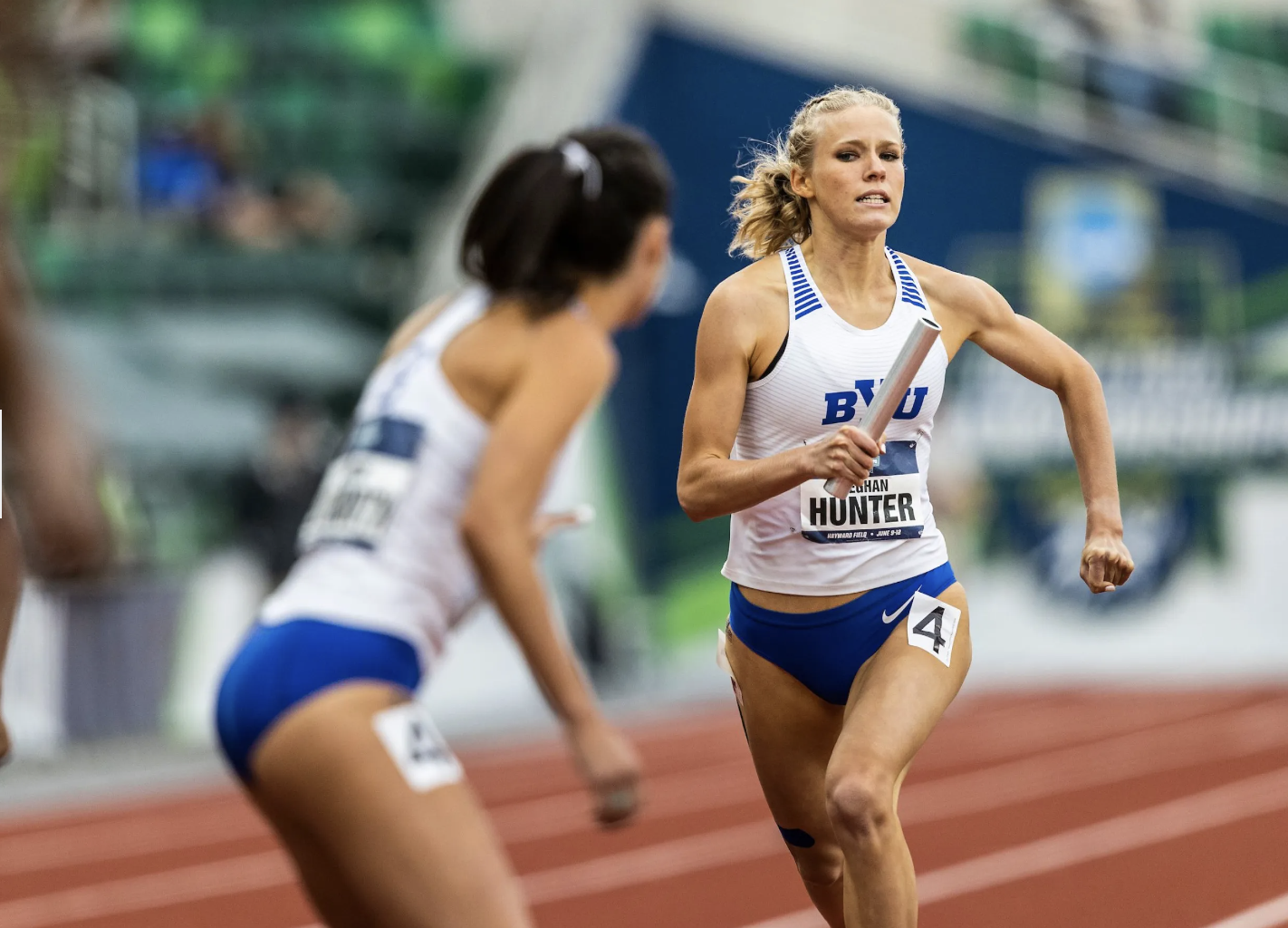
Meghan Hunter competes at the NCAA outdoor championships in Eugene, Oregon, on June 10, 2021. BYU track star Meghan Hunter has never stopped chasing her passion for running, even when a devastating neck injury in 2020 paused her career. (Photo courtesy of Nate Edwards, BYU)
Meghan Hunter has never stopped chasing her passion for running, even when a devastating neck injury in 2020 paused her career.
Hunter ran track throughout her time at Provo High School and had already committed to joining the BYU track team in 2019 when she was in a car crash that shattered several vertebrae in her neck. Although doctors expected it would take a year or two for her to even begin jogging normally, she returned to the track for regular practice less than 10 months later, in April 2020.
While the physical recovery was hard, Hunter said the mental recovery was the most difficult part. She said what helped her most was recognizing the progress she made and not focusing on setbacks.
Life before the injury
Hunter comes from a family of runners; her dad, Iain Hunter, ran the 800 at BYU while he was an undergrad, and her sister, Kate, was also on the BYU track team. She said their passion for the sport inspired her to run track throughout high school.
“I’m gonna be honest, I was not a big fan when I was younger,” Hunter said. “But once I started actually competing and training in high school, I just fell in love with it. The feeling of finishing a run is one of the best in the world.”
Although Hunter said the social aspect of being on a team was one of the main reasons she enjoyed running track, she was also good at it. She set a record for the 400-meter dash as a junior at Provo High and was named the Gatorade State Player of the Year for women’s track and field in 2017 and 2018.
Hunter’s father, a BYU exercise science professor, has studied running mechanics and how it relates to performance for 21 years. He helped Hunter develop techniques to hone her raw talent.
“She was showing incredible race times, (but) her running technique was awful, actually,” Iain Hunter said. “Being a researcher that studies running mechanics, I was always thinking, what do we do to make her even faster?”
His understanding of running technique and the human body was essential to Hunter’s recovery after the accident, as it allowed them to track her progress and measure her growth.
The accident
On the morning of July 4, 2019, Meghan Hunter and her brother Morgan were driving to Park City when a deer appeared in the road. Morgan, who was driving, swerved to avoid it, and the car rolled several times.
Meghan recalled feeling pain in her neck each time the car hit the ground, but she assumed she just had whiplash.
“I was just kind of in denial and shock at the time,” she said.
A passerby stopped and realized the severity of Meghan’s injuries, so they called an ambulance. When doctors told her she had broken her neck, she said she could hardly believe it.
“I had broken vertebrae C4, C5 and C6, and I had dissected an artery. I was Life Flighted to the Intermountain Provo (hospital), and I had surgery the next day and they fused the bone together,” she said.
The doctors told Meghan Hunter they doubted she would be able to run at her previous level, but she remained optimistic.
“There were a lot of different emotions,” she said. “For the most part, I was able to be okay because I had a good support system.”
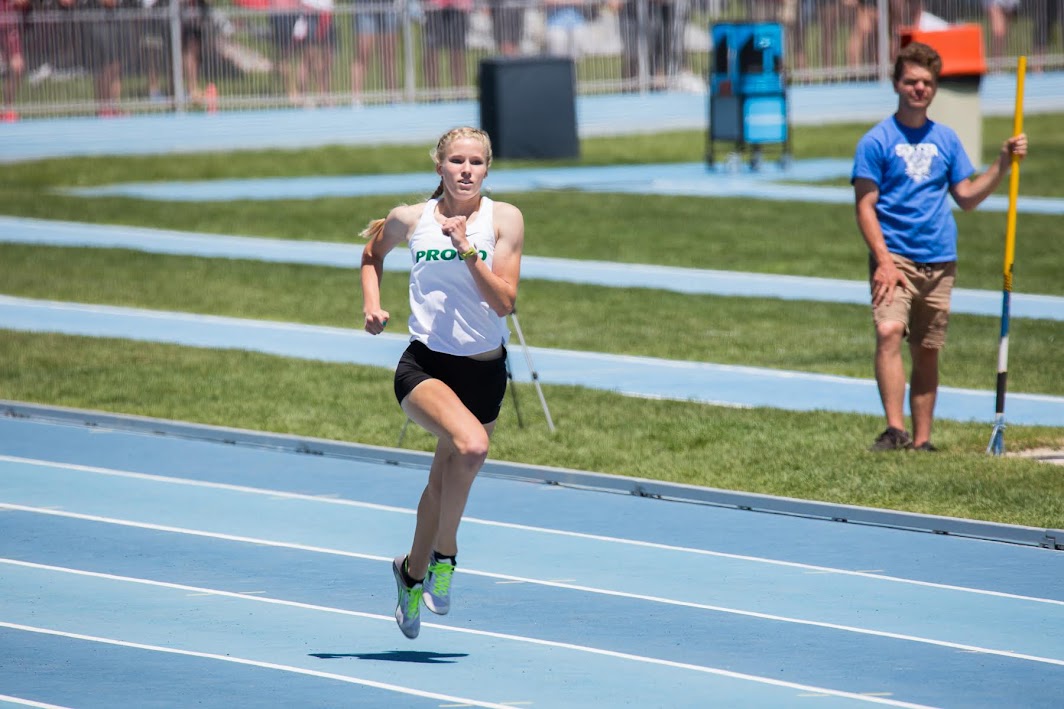
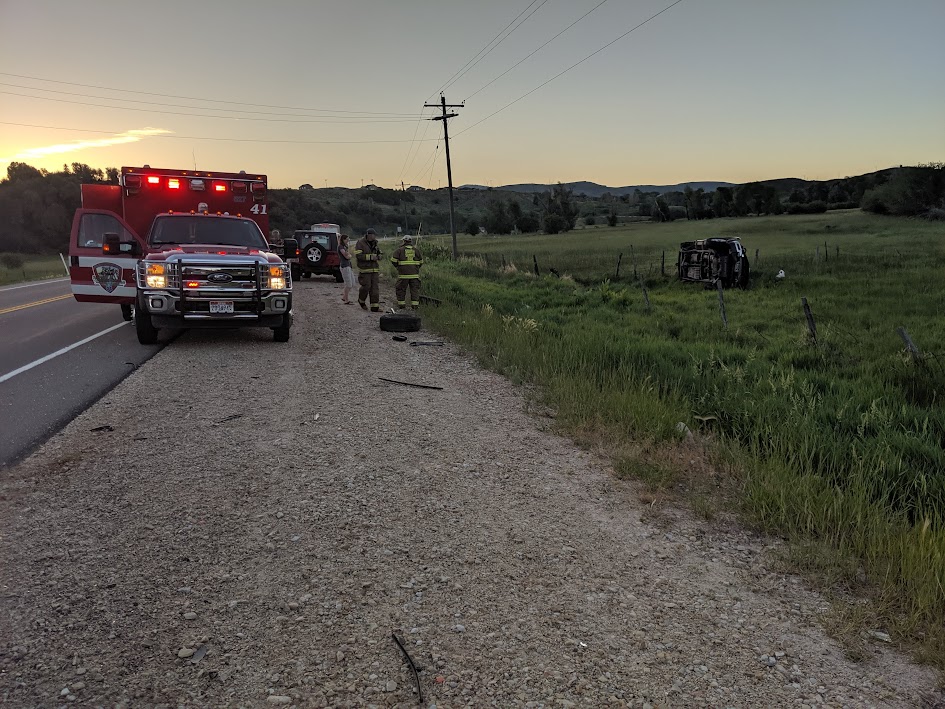

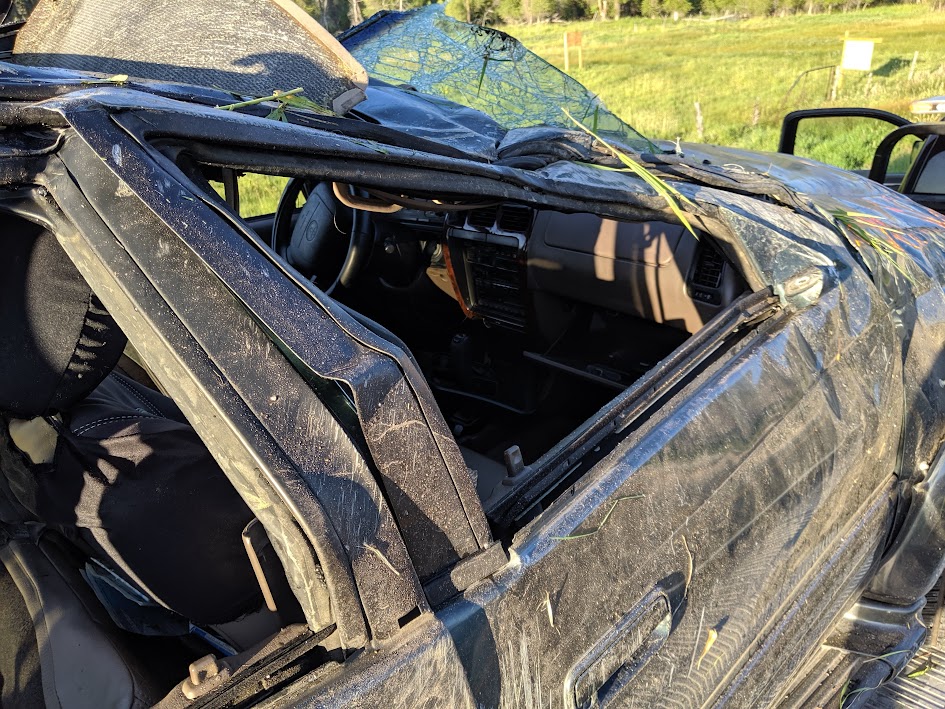


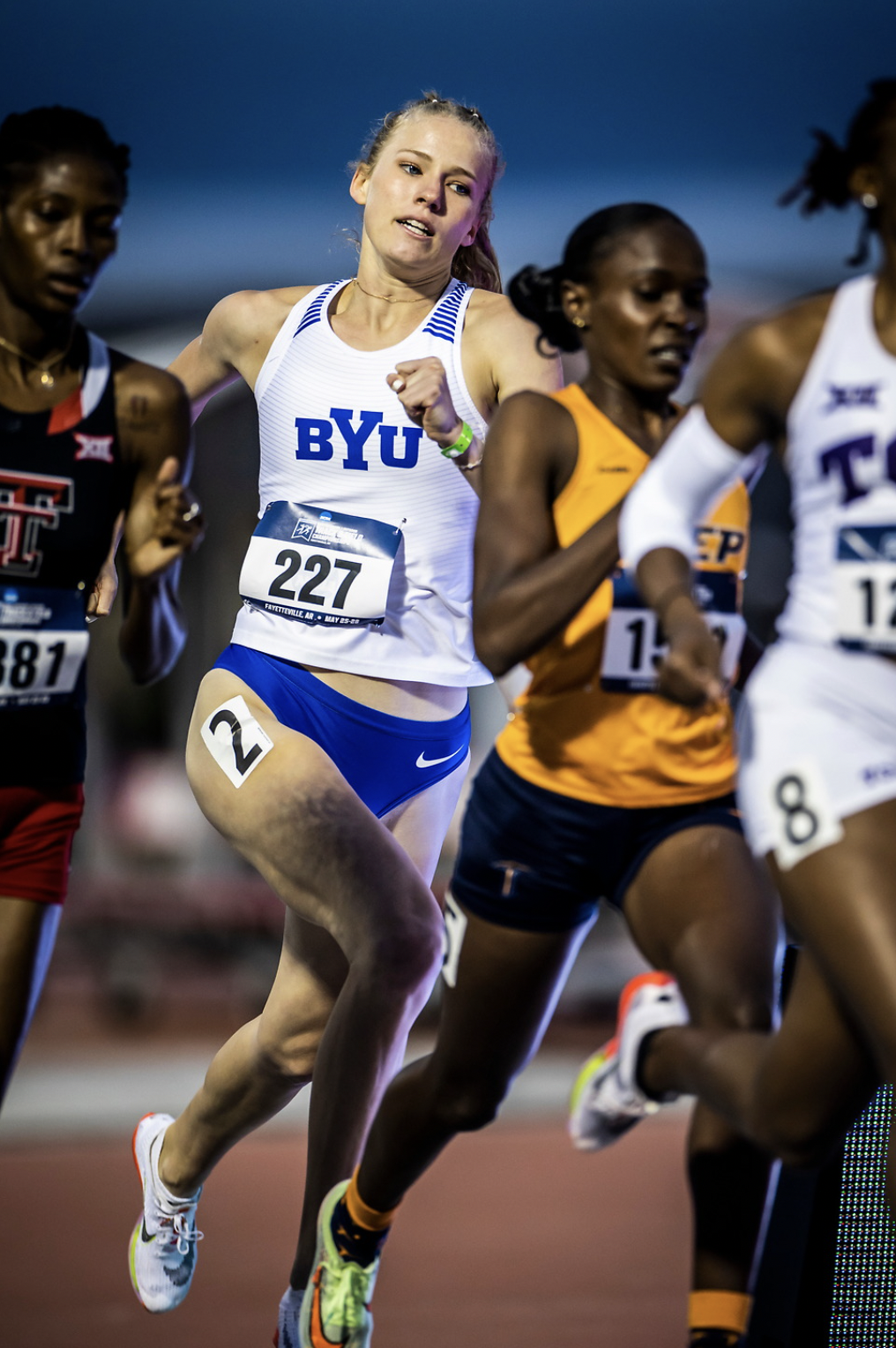
Recovery and return
Hunter said she was originally drawn to BYU because of its high standards and religious emphasis, but the best part of her recruiting visits was the track team.
“The biggest thing that I loved about it was the people there,” she said. “I loved all the teammates I met — it felt like I really connected with them.”
When Hunter was injured, those people came through, visiting her in the hospital and helping her through her recovery. She said her coach came every day, and even teammates she had not met yet came to visit her.
After she was discharged from the hospital, Hunter said the athletic training staff at BYU was incredible in helping her recover.
Hunter was able to train with advanced equipment, such as an AlterG treadmill, which helps reduce gravitational pull on the body. From there, she gradually transitioned to running on the ground, and she was able to start normal workouts with the track team in April 2020.
Since then, she has only gotten faster. Hunter set a personal best time of 2:04.08 in the 800-meter run at the Mountain Pacific Sports Federation Indoor Track & Field Championships in February. It was the sixth-fastest indoor 800-meter run time in BYU history.
Overcoming life’s hurdles
Despite her success, Hunter said her progress has been difficult and painful at times. She said she started experiencing symptoms of post-traumatic stress disorder a year and a half ago, and the emotional repercussions have been hard to overcome.
She said that when things were going well, she would feel happy and confident in her recovery, but that a setback would cause a sort of crash.
“When I had one of those dips, I would really struggle and just think, ‘Oh, the world is ending, there’s no hope,'” she shared.
Hunter said being able to look back and see the progress she has made has helped her recognize even the small successes and pull herself out of dark places.
Hunter’s coaches were able to track her progress in her father’s biomechanics lab here at BYU. Iain Hunter said Meghan would come in about every three weeks to take measurements, and he could see her returning to her pre-injury level.
“At least emotionally, that helps, seeing progress that we can measure,” he said. “There’s psychological strengthening that comes from seeing and being motivated by people trying to help, along with seeing measurements that show improvement is happening.”
Meghan Hunter said she agreed.
“I am improving overall, and I’m able to come back from those dips better than I used to,” she said.
While not everyone faces a broken neck, both physical and mental injuries or illnesses can prevent people from doing what they love, whether that is running track or pursuing a different passion.
Krystie Solomon, a freshman on the track team, said she has never faced an injury like Hunter’s and was amazed at her recovery. However, Solomon’s experience with disordered eating in the past affected her in similar ways — just like Hunter, she said she was unable to compete at her full potential while she struggled with the disorder.
Solomon said that having gratitude for her body and working on changing her mindset helped her overcome her disorder, just as Hunter was able to overcome her injury.
“I just had to think about where I wanted to be and who I wanted to be, and that shifted my mind into stopping habits,” she said.
Hunter advised BYU students who face trials, whether they be physical or mental, to focus on reminding themselves why they do the things they love and to emphasize doing things that will lead to recovery. When they face setbacks in the road to recovery, they said they have learned to work through them and not give up.
Hunter is currently training with her team in preparation for the upcoming indoor track season, which starts in December. She said the coaches are helping the team prepare by focusing on strength and endurance and encouraging them to eat well.
Although Hunter said some of her weight training has to be adjusted to protect her neck, she is fully healed and is running even faster than she was before the injury. She said she has been diagnosed with PTSD following her accident, but she is addressing her mental and physical healing one step at a time.
“Progress isn’t linear,” she said. “That’s okay as long as you’re just attempting to do your best.”
